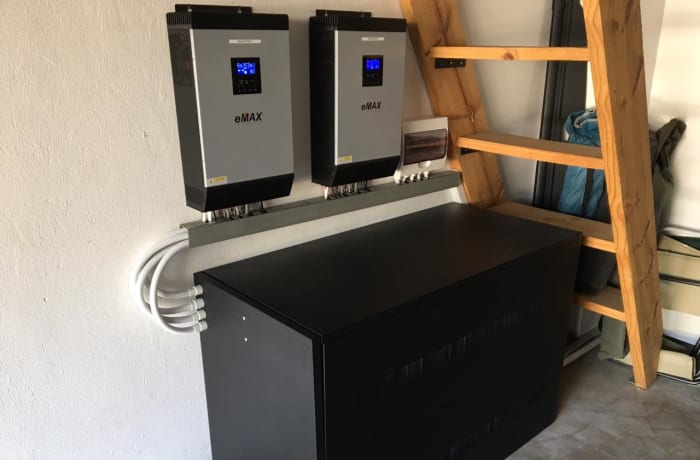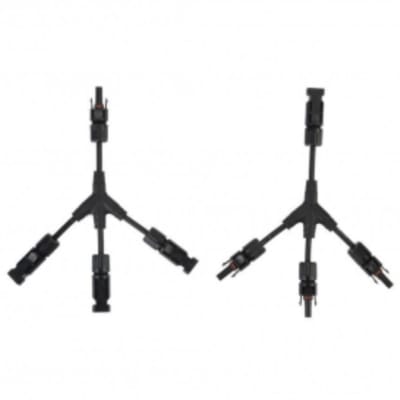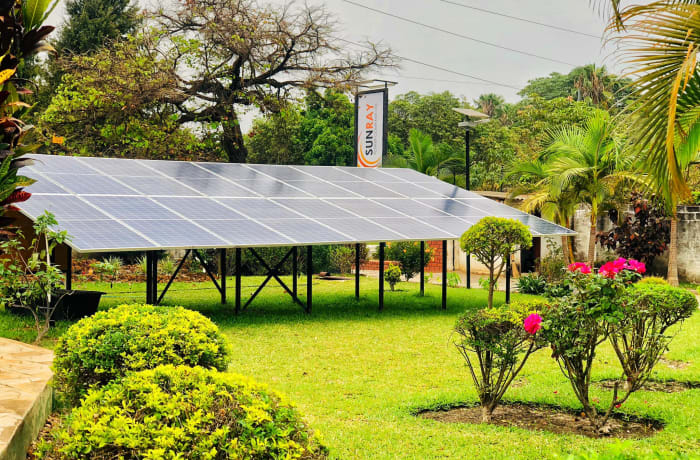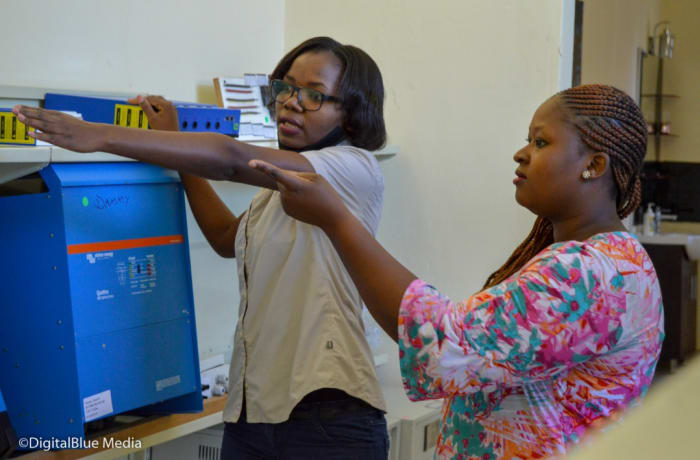
Sunray Power Company
Lusaka, Zambia
Updated 2 months ago
Incorporated in 2013, Sunray Power is a Zambian company that designs, supplies and installs high quality solar products including solar panels, batteries, inverters, charge controllers, solar water pumps, heat pumps, mounting structures as well as a wide selection of related accessories. Its main goal is to bring technically sound and value-optimised renewable energy solutions to the people of Zambia, and Africa at large.
Contact info
Chamba Valley Mall, Lusaka
3, Chamba Valley Mall, Munali Road, Chamba Valley, Lusaka, Zambia
+260977589751, +260967208005
Message business
Enquiries, questions, quotation requests etc
Enquire via Email
Enquire via WhatsApp
Stay connected to the source that never fails
News
27 days ago
Looking to go solar?
News
about 1 month ago
The only power you can rely on is that of NATURE!
News
2 months ago
Solar products
Sunray Power Company is a leading supplier of domestic and commercial solar panels, batteries, inverters, pumps, lights, fridges, charge controllers and more. The company designs and installs bespoke solar systems such as DC or AC systems for homes, schools, hospitals, businesses and universities. Sunray aims to make you self reliant with regard to energy generation thereby reducing your energy costs as well as environmental pollution.
High quality, reliable and cost effective solar products
Helps businesses function during load shedding
Design and installation of solar systems




+9
Products and Packages
1-3 of 39 results
2
3

Sunray Power Company
Solar & Renewable
K8.10
Pv Connector with Cable 4 to 1
Connectors & Terminals
PV Connector with Cable 4 to 1 is a type of connector commonly used in photovoltaic (PV) systems to connect solar panels to the inverter or other components of the system. It is designed to connect four solar panels in parallel to a single input on the inverter or charge controller.

Sunray Power Company
Solar & Renewable
K592
Pv Connector with Cable 3 to 1
Connectors & Terminals
The PV Connector with Cable 3 to 1 is an electrical connector designed for use in photovoltaic (PV) solar power systems. This connector is used to connect three solar panels of equal voltage and current output to a single input or output wire.

Sunray Power Company
Solar & Renewable
K377
Pv Connector with Cable 2 to 1
Connectors & Terminals
PV Connector with Cable 2 to 1 is an essential component in PV solar power systems that require the connection of multiple solar panels to a single wire. It is a reliable and efficient connector that is easy to install and made from high-quality materials. The PV Connector with Cable 2 to 1 simplifies installation and reduces the amount of wiring required, making it a popular choice for solar power system installers.
Solar power generation
As the country faces a power deficit, you can generate your own energy with this company's range of solar panels, inverters, batteries and charge controllers. Sunray Power Company prides itself in providing green energy solutions that are environmentally friendly, energy efficient, cost effective and capable of delivering a quick return on investment.
Generate your own energy
Say goodbye to the challenges of grid energy
Products deliver a quick return on investment




+8
Products and Packages
1-3 of 340 results
24
20

Sunray Power Company
Power generation
K5,680
1.5kw/Three-Phase 380v Vfd 3phase
Inverters & Converters
INVT Electric
The 1.5KW/Three-phase 380V VFD is a variable frequency drive designed for use with three-phase electrical systems. It is capable of handling a power rating of 1.5KW and requires a three-phase 380V input voltage.

Sunray Power Company
Power generation
K5,580
0.75kw/Three-Phase 380v Vfd 3phase
Inverters & Converters
INVT Electric
The 0.75KW/Three-phase 380V VFD is a variable frequency drive that is designed for use with three-phase electrical systems. It is capable of handling a power rating of 0.75KW and requires a three-phase 380V input voltage.

Sunray Power Company
Power generation
K8,300
7.5kw/Three-Phase 380v
Inverters & Converters
INVT Electric
The 7.5KW/Three-phase 380V Goodrive 100-4-PV is a variable frequency drive (VFD) that is designed for use in photovoltaic (PV) applications. It is a specific model of the Goodrive 100-4-PV VFD and is capable of handling a power rating of 7.5KW with a three-phase 380V input and output voltage.
Energy consultants
As a solar energy consultancy, Sunray Power provides professional advice and support in all areas - from the initial design to the installation of your solar power system. The team will give you their skills, knowledge and expertise in the key areas of consideration which you should be focused on before making an investment in solar energy technology and power backup solutions. The company has also introduced the Sunray Partner Program (SPP) for those interested in selling their solar products.
Expert consultancy for small to large scale solar energy power projects
Design of bespoke solar solutions, monitoring of installations and PV solar training
Opportunity to join the Sunray Partner Program (SPP)




+8
Products and Packages
1-1 of 1 results
1

Sunray Power Company
Energy consultants
K160
Battery Hazzard Stickers
Packaging Labels
Battery hazard stickers are warning labels that are affixed to batteries or battery-powered devices to indicate the potential hazards associated with them.
Contact information
Chamba Valley Mall, Lusaka
3, Chamba Valley Mall, Munali Road, Chamba Valley, Lusaka, Zambia
+260977589751, +260967208005
Message Sunray Power Company
Enquiries, questions, quotation requests etc
Enquire via Email
Enquire via WhatsApp
Other locations
1-2 of 2 results
Chamba Valley Mall, Lusaka
3, Chamba Valley Mall, Munali Road, Chamba Valley, Lusaka, Zambia
+260977589751, +260967208005
Run a business in Zambia?
© 2021 Infobwana, Ltd. All rights reserved. Formally thebestofzambia.com · Learn more

















